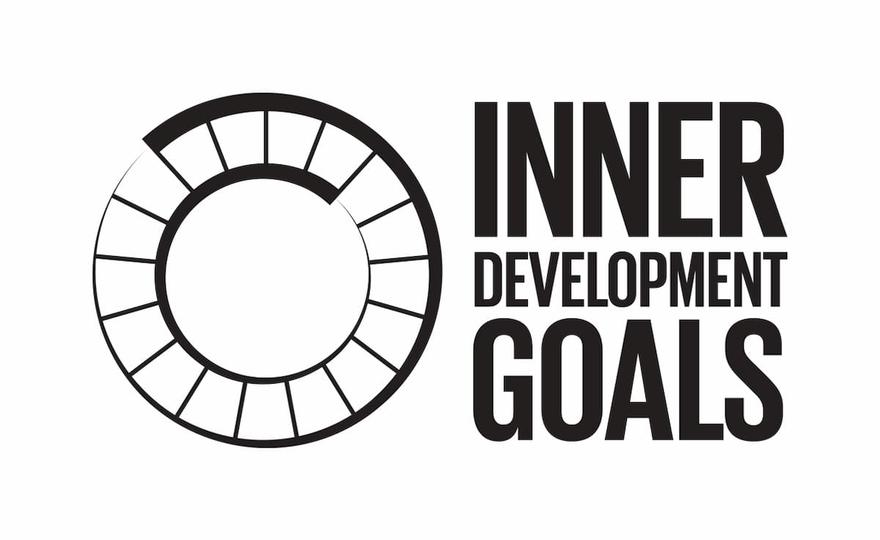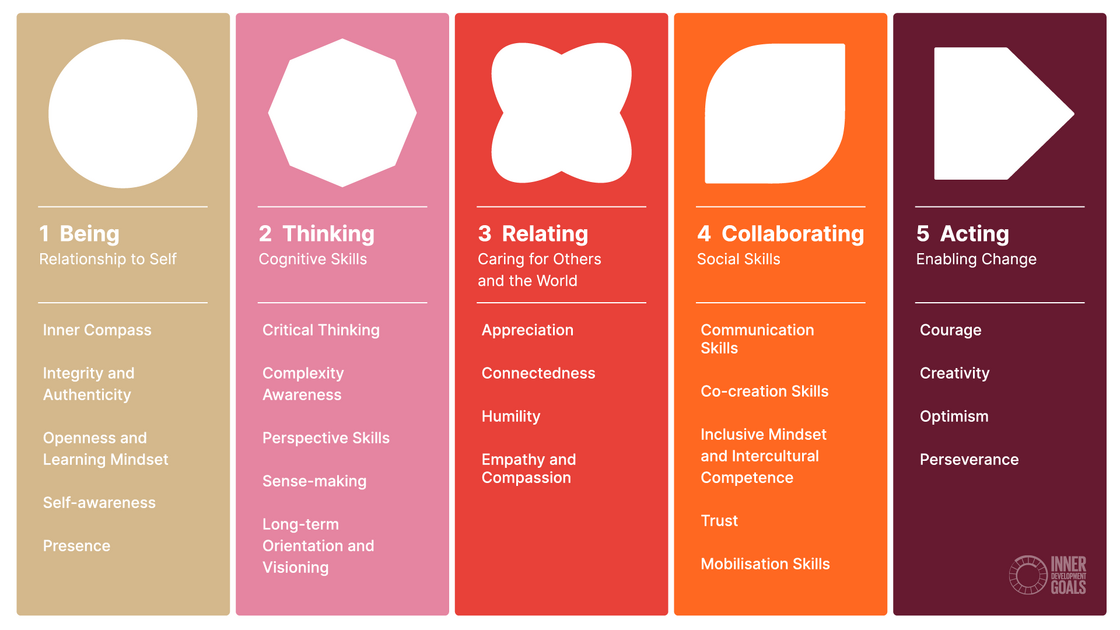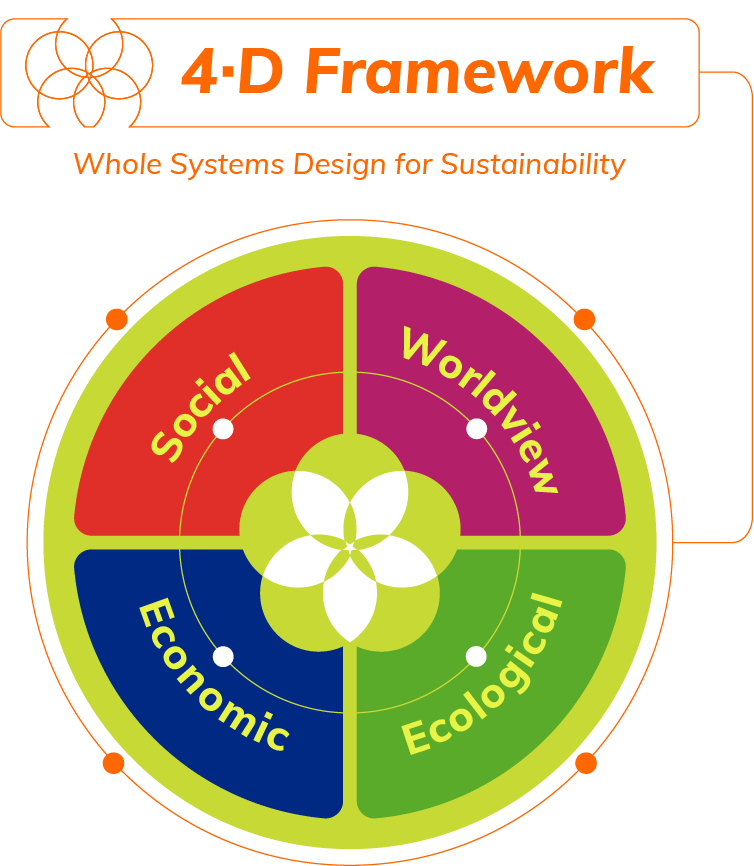IDG - Inner Development Goals explained

SDG post #18 - IDG - Inner Development Goals
Hi #sustainability champions, you may have thought that we are all done and dusted with the SDGs having gone through all the individual SDGs one by one to polish our knowledge and upscale in SDG learning. As you know we send out a post approximately once weekly and you find previous SDGs posts on this blog roll. But we continue the journey with some additional explorations related to the Agenda 2030 and the SDGs, which we feel are important and worthwhile to know about. Today we tackle what are called the IDG - Inner Development Goals.
As before you can follow or connect with us and see what we have to offer related to upscaling your change maker abilities (of tools and training) on our SDG toolkit webpages. ✔
So let’s explore the IDG, also known as "Inner Development Goals ” in a concise manner suitable for learning.
Background and Context of the IDG?
As you are very well and maybe painfully aware having followed the SDGs explained blog series, now that we are way past the halfway point to the deadline of the Agenda 2030, the unfortunate reality is that progress has so far been disappointing, glacially slow and is still far off track and in peril. Data released in the 2024 Sustainability Development Report shows that based on the current pace of progress, a mere 17% of the SDG targets are on track to be achieved. In fact, it indicates that we are further off-track than six years ago as a consequence of the ongoing pandemic, rising inflation and the cost-of-living crisis, planetary, environmental and economic distress, along with regional and national unrest, escalating, conflicts, and natural disasters and the trajectory looks rather grim.
While possessing the necessary resources and technology to achieve the goals, considering the SDGs solely as technical and to some extent social problems solvable through structural policy instruments or other external methods might be contributing to our lack of progress. The SDGs provide a tangible roadmap, but a crucial question arises: do humans currently possess the capacity to navigate this intricate and interconnected landscape of challenges?
Our evolutionary history, which has us primed for immediate threats and short-term decision-making, often falls short when confronted with long-term, abstract problems. The complexity of our modern environment and societal issues often outstrips our innate cognitive capacities, triggering our unconscious psychological barriers such as denial, rationalisation or discordance, among other ‘dragons of inaction’.
“A regenerative human culture is healthy, resilient and adaptable; it cares for the planet and it cares for life in the awareness that this is the most effective way to create a thriving future for all of humanity.” Daniel Christian Wahl, Author, Educator, Innovator, Designer, Gaia Education Advisor and course creator
Addressing our global challenges necessitates a change in the underlying worldviews, beliefs, values and mindsets that originally caused them. It requires an innovative approach to identify, rectify and reshape the fundamental origins of these issues – human consciousness. Fortunately, modern research shows that the inner abilities we (individually and collectively) need to face and overcome these complex challenges can be developed. This was the starting point for the Inner Development Goals initiative. In an era where attention to external factors and siloed mechanistic solutions often take precedence, the concept of Inner Development emerges as an innovative approach for communicating the value of personal and collective development and growth to collective sustainability and systemic change. Unlike conventional goals that focus solely on material gains, the IDGs delve into the realm of integrated development, encompassing emotional, psychological, social, and spiritual well-being to better equip us for the unprecedented challenges we face today.
The IDGs is an open network co-creating the Inner Development Goals (IDG) – a non-profit, open-source initiative committed to fostering inner development towards more sustainable futures. They research, collect, and communicate science-based skills and qualities that help to live purposeful, sustainable, and productive lives. So far they have developed an inner development framework and a toolbox of various methods and approaches to achieve the attainment of such inner skills, through a network of thousands of contributors worldwide.
The Inner Development Goals Framework simplifies a complex field of human development (individual and collective) to help us better identify, understand, communicate, develop and integrate the inner skills needed for true sustainable development.
The IDG framework rightly posits that there is a pressing need to increase our collective abilities to face and effectively work with complex challenges. And without a foundational shift in human worldviews, beliefs, mind sets, values and hence leadership capabilities and capacities, external solutions to our global challenges are limited, too slow or short-lived, as can be observed with the SDGs.
This is why the IDG Framework was being co-created as a roadmap that can assist in navigating and developing our inner lives to catalyse outer change.
Rooted in interdisciplinary research, the IDG Framework consists of 5 dimensions with 23 skills of human inner growth and development.

To provide a better understanding of each of the 5 dimensions, a small description accompanies each one, explaining their distinct attributes and significance:
- Being: Cultivating our inner life and developing and deepening our relationship to our thoughts, feelings, and body help us be present, intentional and non-reactive when we face complexity.
- Thinking: Developing our cognitive skills by taking different perspectives, evaluating information and making sense of the world as an interconnected whole is essential for wise decision-making (i.e. systems and complexity thinking).
- Relating: Appreciating, caring for and feeling connected to others, such as neighbours, future generations or the biosphere, helps us create more just and sustainable systems and societies for everyone.
- Collaborating: To make progress on shared concerns, we need to develop our abilities to include, hold space and communicate with stakeholders with different values, skills and competencies.
- Acting: Qualities such as courage and optimism help us acquire true agency, break old patterns, generate original ideas and act with persistence in uncertain times.
The actual tools which can be used to accomplish the necessary skills in these different dimensions as defined by the IDG network, are not necessarily new, but consist of a collection of a number of existing methods, tools and approaches, collected into this framework from the contributors around the world (e.g. Theory U, Process Work, Deep Ecology, Positive Psychology, Integral Theory and Practice, etc.).
How to work with the IDG
The question for gaining new skills is often "How can I start implementing IDG in my work? Are there any initial trainings, a toolkit, something concrete I can use?"
A good starting point before you head into the tools is by familiarising yourself with the actual IDG framework in more depth, which can be found here - IDG Framework. And following on from that:
Where you can dive into the public beta database of the IDG Toolkit, based on a Phase 2 IDG Research Report and the findings from 29k contributors and reviewers. This open-source resource is evolving with the help of the global IDG community. You can also join in shaping this toolkit to drive inner development for sustainable impact.
Understand where you stand and identify areas for growth. This tool offers valuable insights into your own IDG skills and qualities, providing a baseline as you embark on this journey. A free account to access this tool is needed.
Designed for educators aiming to empower students as change-makers, this resource features tools developed by an active community of teachers in the Netherlands. The toolbox aligns with the IDG framework across five categories, providing 23 learning outcomes and ready-to-use activities, including assessments.
A wider and different lens
It is our view that the IDGs have much to offer for the missing parts of inner development for outer change, and Gaia Education is and has been using many tools and approaches found in the IDG toolbox (and more) as part of our own teachings and courses from its inception (some 20 years ago in 2025), hence is not new as such, but put under a concise and accessible framework. But one should be aware that it also reflects one particular set and direction of what it entails to achieve what is needed, not least its so far global north centric as well as some contend it is too much focused on individuals rather on collective and systemic transformation. Furthermore, one has to reflect upon carefully on frameworks and toolboxes as human development can and should not be pressed into linear and mechanistic learning concepts. Hence use with caution and care!
However, inner work and development, our worldviews and beliefs as well as looking at and working with shadows and trauma for example are essential work for making the SDGs (outer development) possible and successful and the basis to move beyond sustainability towards regeneration. And there are various ways and approaches to do so, the IDGs are one of these. A good recent summary and introduction on the importance of inner work is also provided in this Earth4All deep diver paper through the Club of Rome - The system within.
What else is there?
There are of course many diverse pathways and options for achieving inner (and outer) development skills, capabilities and capacities (for individuals and groups) and it depends also on where you are at and it's not within the scope of this blog post to comprehensively cover all the different options for personal and collective transformation. But, all Gaia Education courses and offerings have such transformation also in the form of transformational education as part of their aims and processes, with some working directly and more targeted in this direction (e.g. Worldview Dimension of the Design for Sustainability and Regeneration, 4-D Regenerative Design Literacy, Principles and Practice of Deep Transformation, Systems Thinking for Real World Change,…).
As you have experienced throughout the SDGs explained blog posts Gaia Education uses a 4-D Framework for Integrative Whole Systems Design for Sustainability and Regeneration (further elaborated here). Rather than sticking with the conventional ‘three-legged-stool’ framework of sustainability (ecological, social, economic), Gaia Education has always highlighted the importance of culture, worldview, values and spirituality as a critical and foundational fourth dimension of sustainability and regeneration, together with a systemic and integral integration (or weaving together) of these tightly interconnected dimensions of sustainability and regeneration into a holistic design concept and in that sense strongly connect with the IDGs but also beyond.

Change in worldviews, beliefs, values, mindsets and culture change go hand in hand. They are the drivers of behaviour change. The why affects the how and what we design. As our worldview changes, so do our intentions and our real and perceived needs.
A holistic, participatory and ecologically informed living systems view of life explores the why of sustainability and regeneration providing a basis for reframing humanity’s guiding story from one of separation to one of interbeing. Such a perspective allows us to synergistically integrate the social, economic and ecological aspects of the transformations ahead.
This, as you have experienced through the SDGs explained blog series is reflected in the SDG Flashcards, viewing them not only as an interconnected system but from all of the four dimensions of sustainability and regeneration (the questions on the SDG flashcards).

The worldview (inner) dimension of the transformation towards a culture of sustainability and regeneration has so far been often overlooked and neglected. Sustainability is not a fixed state of affairs brought about by a series of technological fixes and top down policy decisions. Rather, it is a community-based process of learning how to participate appropriately in constantly and increasingly rapidly changing social, environmental and economic complexities.
As such, the creation of a culture of sustainability and regeneration requires full participation by ecologically and socially literate citizens, responsible business practices, and inspired political leadership. This can only be achieved by new approaches to life-long learning and education facilitating changes in worldview, beliefs and value systems. In turn, increased awareness and transformations in consciousness will form the basis for widespread changes towards more sustainable and regenerative lifestyles and practices in all domains. Such lifestyle and practice changes are a prerequisite for a successful transformation towards regeneration.
To close if you would like to learn much more about the SDGs, and all other IDGs and many associated and many more topics (some of what has been explored in this blog and much more), approaches and methods to practically work with the SDGs in your local to bioregional context we encourage you to start or re-invigorate your personal SDG journey through the upcoming online SDGs Multipliers course, starting on 20th October 2025. And/or you can sign up for the Gaia Education Newsletter to stay informed and up to date on the many offers and developments we are part of.
#Agenda2030 #2030Agenda #SDGs #sdg #GlobalGoals #climateaction #ESD #17daysofsdgs #sdgimpact #sustainability #sustainabledevelopmentgoals #unitednations #goal #innerdevelopmentgoals #idg


0 comments
Leave a comment